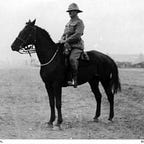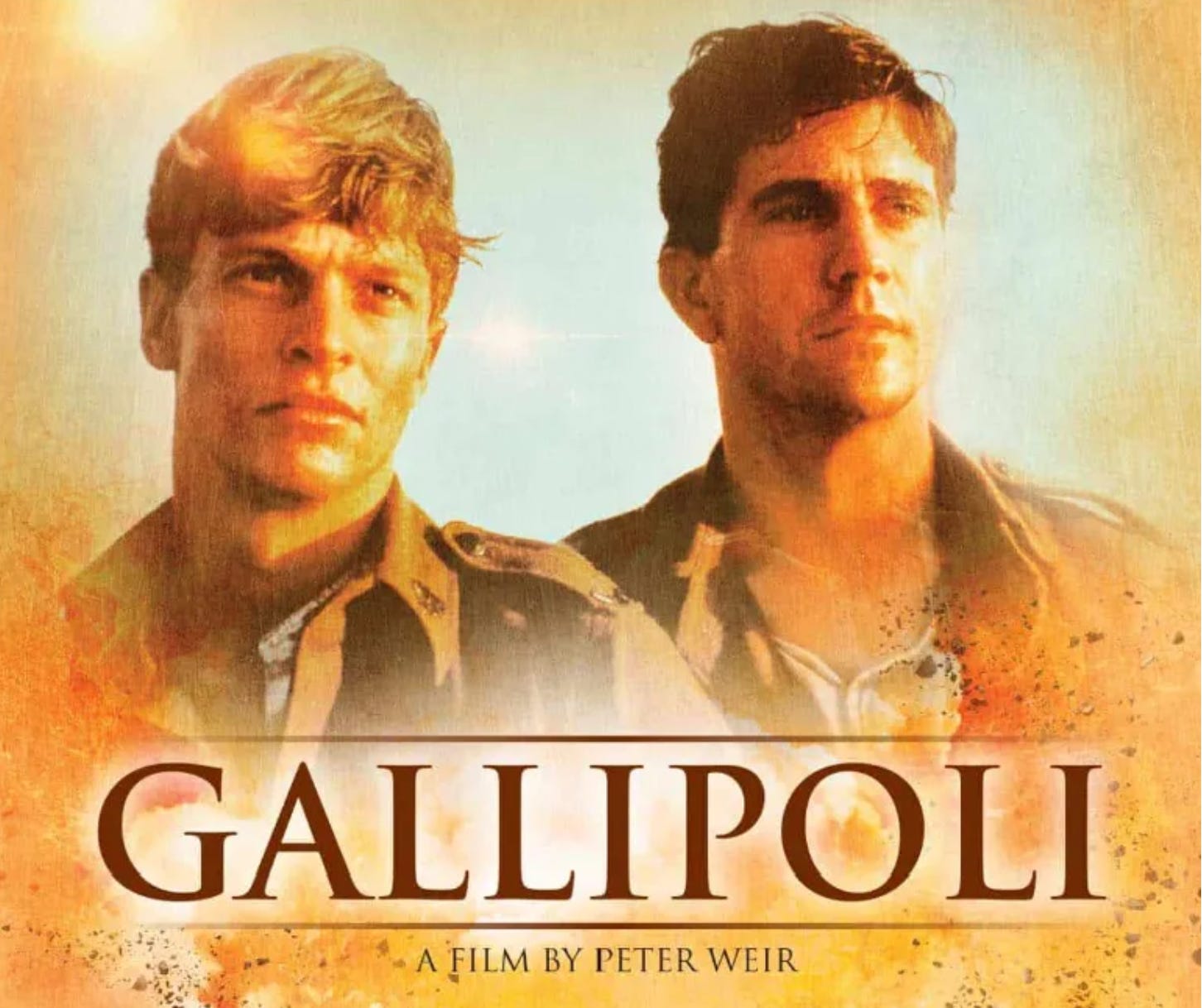Back in World War I, the Australian and New Zealand Army Corp (ANZAC) were sent off to fight the Turks in what is known at the Gallipoli campaign. My great grandfather, Lt Col Hubert Harris (above) fought and died and at Gallipoli. He bled out after a Turkish sniper shot down a sniper hole built into the ANZAC trenches from a distance of 20 metres (hard to believe that they were that accurate - but apparently they were). He remains buried at Gallipoli. To cut a long story short, the landings did not go well, many Australians and New Zealanders lost their lives, and after 10 months were forced to retreat.
During Covid I worked on my family tree. I can say without doubt, that Hubert Harris is by far the most clearly recorded family member. The Australian War Memorial keeps extraordinarily detailed records of all the ANZACs, and in 2021 held a memorial event solely in my great grandfather’s honour. Australia’s obsession with Anzacs is driven slightly by grievance. Why? Well it is widely considered that Australians were used as cannon fodder to act as a distraction to allow British forces to land unharmed. For the Australian view of Gallipoli, 1981 Peter Weir film, starring a young Mel Gibson, will give you the gist.
World War I remains the war that saw the most Australians die, despite the growth in Australia’s population since then. Slightly more than 8,000 Australians died at Gallipoli, out of a total near 62,000 deaths in World War I. In World War II, there were 27,000 Australian deaths, despite the fighting coming much closer to Australia. For a more modern context, 60,000 Australians served in the Vietnam war, with only 541 deaths - or less than 1% death rate. But even with these much smaller numbers, the affect on Australian political life of Vietnam was huge. It is also not hard to find studies that show mortality rates for Australian soldiers ran at much higher rates than other allies during World War I. Below is taken from the website “1914-1918 online”. It has a 20% death rate for Australian soldiers. For these reasons, it is easy to see why the Gallipoli campaign still echoes today.
For Australians, who had been granted independence from Britain in 1901, rather than fighting for it, the Gallipoli campaign marked the beginning of an idea of a separate nation with its own identity. And for this reason, Australians mark ANZAC day with our own Australian mix of solemnity and partying. Huge marches take place all over Australia for service men and women, that are very well attended.
And then everyone goes to the pub and play a gambling game called “two-up”. This was a gambling game played by the Australian and New Zealand soldiers in the trenches to pass the time. It is usually illegal, but on Anzac day anyone anywhere can play it. If done right, should get very rowdy.
For many foreigners, the first time they encounter ANZAC day, they are likely to comment that it’s very Australian to turn a remembrance day celebration in to a drunken gambling event. While that is true, it also misses the point. The true point of ANZAC day, in my view, is that no matter how difficult things can be, being inclusive and supportive, and celebrating life, is the truly Australian way. And I am sure my great grandfather would think its fantastic that Australians everywhere remember their dead and then have the freedom to have a beer and gamble in their honour. What’s the point in fighting for freedom if you don’t let you and your descendants be free. For me, having a beer and a bet is probably the greatest homage we can pay to our fallen.
















